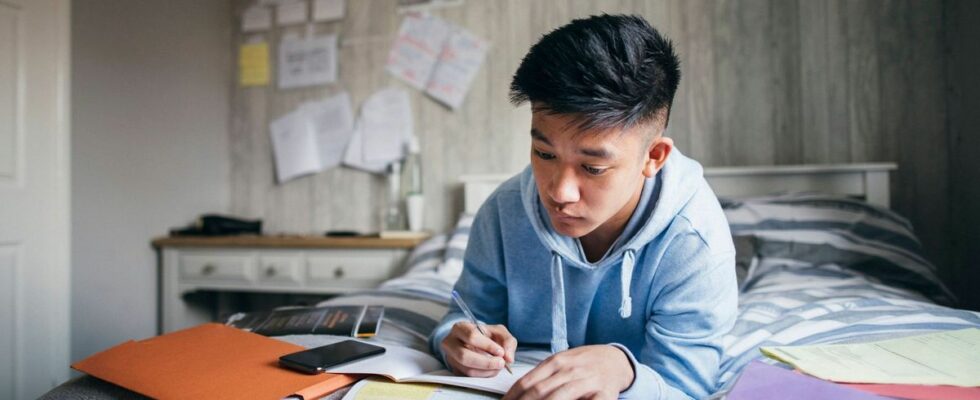Published on
updated on
Reading 3 min.
“An explosion of stress”: for several thousand students suffering from school phobia, the approaching start of the school year often marks a resurgence of anxiety, the main symptom of this illness which leads to people abandoning school.
Simon (name changed), 15, will not be entering middle school on September 2. For the second consecutive year, the teenager will be taking classes at the National Center for Distance Learning (CNED) from home, with his sights set on getting his brevet at the end of his 3rd year.
An irrational fear of going to school
“Reassured“following distance learning, the student remembers periods of intense stress, headaches and stomach aches and a loss of appetite before the start of the school year, until the morning of the return to class:”When I was in front of the school, I was almost paralyzed.”.
For Jessica Gueye-Diffurth too, who just finished high school at 17, the start of the school year has long been synonymous with blockages and discouragement.It made me very anxious (…), most of the time I simply told myself that I wasn’t going to succeed, that it was going to be useless.“.
Like about 1% to 5% of students – in the absence of a census, the figures vary depending on the study – the two adolescents suffer from school phobia, also called anxious school refusal. That is “an irrational fear of going to school“associated with”very significant anxiety symptoms“, explains child psychiatrist Laelia Benoit, researcher at Inserm.
“The time when there is a huge peak is often at the start of the school year in September (…), because it is a big change” she confirms.
A long time before returning to class
However, the students concerned are not always detectable from September.
The co-president of theSchool Phobia Associationmade up of parents of students, explains that many children hide their anxiety for a while.They hold on, they compensate, and at some point, when they have no more resources, they crack.“, points out Christelle Schnitzler: the students then tip over into dropping out of school.
If, as for Simon, homeschooling can then be a temporary solution, the law has tightened the conditions in 2021, requiring parents to request prior authorization, supported by a medical certificate.It’s a bit of a lottery“, notes Christelle Schnitzler, who explains having noticed “more and more” refusals in certain departments.
As for returning to class, it necessarily takes time: “between 18 months and 2 years“, warns Christine Baveux. Director of studies at the House of Solennwhich welcomes children and adolescents with psychological and psychiatric disorders, she runs “reschooling” workshops, and insists on the need for a very gradual return to school.I always offer part-time“when returning to school,” she emphasizes.
Possible adaptations
Like all students with health problems, school phobics can indeed benefit from adaptations, for example with fewer hours in class, as part of an “individualized support project” in a traditional establishment. It is up to the school and the family to establish a fluid dialogue on the issue.
For other students, returning to traditional classes is too complicated. Structures with a more flexible approach, such as the micro-high schools managed by the National Education system, welcome school dropouts with school phobia at each new school year.
At the micro-high school in Paris, they represent “a good third” of the 55 students in the first and final years, says Karine Halajko, a history and geography teacher at the establishment.
With reduced numbers, less restrictive supervision and psychological monitoring offered, the teaching team tries to reconnect students with school, and supports them until they pass their baccalaureate. The method is “very empirical“, explains Karine Halajko: in the absence of a miracle solution, we must constantly adapt to the potential resurgence of anxiety among students.
Although this monitoring does not achieve unanimous success, some high school students manage to complete an almost normal education.
“The micro-high school has greatly improved my relationship with school“, says Jeanne (who does not wish to give her last name), 20. After obtaining her baccalaureate in 2023, she will begin studying art history in September, and her anxiety has almost disappeared.
“I’m afraid I won’t be up to it, but I think that’s pretty typical for a student.“.
